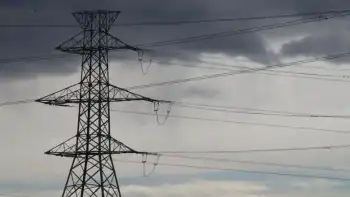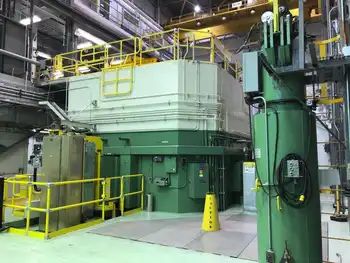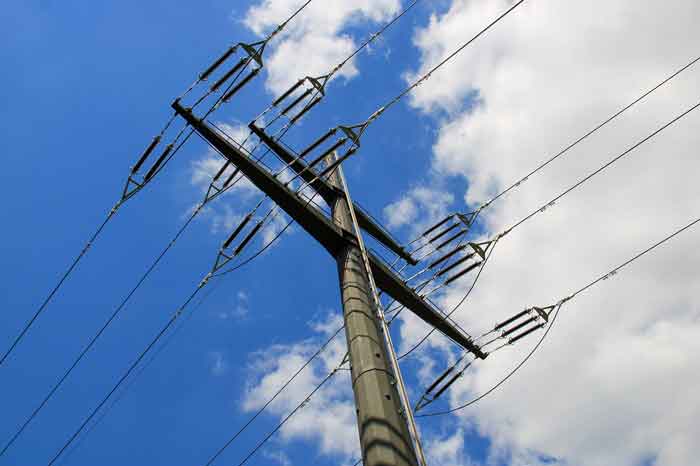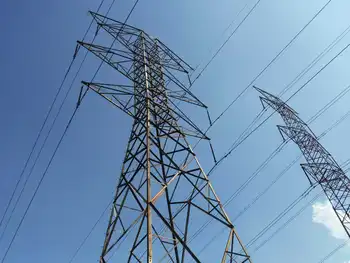EPRI to study adding carbon capture to coal plants
By Chief Engineer
Arc Flash Training - CSA Z462 Electrical Safety
Our customized live online or in‑person group training can be delivered to your staff at your location.

- Live Online
- 6 hours Instructor-led
- Group Training Available
The five host companies and sites include Edison Mission GroupÂ’s 1,536-megawatt Powerton Station, operated by Midwest Generation, in Pekin, IL; Great River EnergyÂ’s 1,100-MW Coal Creek Station in Underwood North Dakota; Nova Scotia PowerÂ’s two 160-MW units at its Lingan Generating Station in Lingan, Nova Scotia; Intermountain Power AgencyÂ’s 950-MW Intermountain Generation Station in Delta, Utah, and the 176-MW circulating fluidized bed boiler Unit 1 at FirstEnergyÂ’s Bay Shore Plant In Oregon, Ohio.
As global demand for electricity increases and regulators worldwide look at ways to reduce CO2 emissions, post-combustion capture (PCC) for both new and existing units could be an important option. However, retrofit of PCC to an existing plant presents significant challenges, including limited space for new plant equipment, limited heat available for process integration, additional cooling water requirements and potential steam turbine modifications.
“EPRI’s analyses have shown carbon capture and storage will be an essential part of the solution if we are to achieve meaningful CO2 emissions reductions at a cost that can be accommodated by our economy,” said Bryan Hannegan, vice president of Generation and Environment at EPRI. “Projects such as this, in which a number of utility companies come forward to offer their facilites and form a collaborative to share the costs of research, are critical to establishing real momentum for the technologies that we will need.”
Each site offers a unique combination of unit sizes and ages, existing and planned emissions controls, fuel types, steam conditions, boilers, turbines, cooling systems, and options for CO2 storage. The variety of data from the studies will provide the participants with valuable information applicable to their own individual power generating assets.
These five studies will be conducted in 2009 and a report for each site will:
• Assess the most practical CO2 capture efficiency configuration based on site constraints;
• Determine the space required for the CO2 capture technology and the interfaces with existing systems;
• Estimate performance and costs for the PCC plant; and
• Assess the features of each plant that materially affect the cost and feasibility of the retrofit.
EPRIÂ’s CoalFleet for Tomorrow program already is conducting technical and economic assessments of ways to reduce CO2 emissions in new, advanced coal-based generation. This new program will apply that knowledge to assess the suitability of retrofitting advanced amine PCC to plants currently in operation and to guide the design of plants under development.
“Knowledge gained from the EPRI study will allow us to evaluate the technical and economic feasibility of reducing carbon emissions from existing coal-fired plants that provide nearly half of this country’s electricity,” said Edison Mission Group CEO Ron Litzinger. “The challenge of achieving a low-carbon future requires multiple approaches, from developing more renewable energy, to increasing energy conservation, to developing technology for new coal plants, to maintaining the viability of existing energy facilities.”
“The ultimate purpose of this research is to help our nation meet the growing demand for energy and reduce greenhouse gas emissions,” said Rick Lancaster, Great River Energy vice president of generation. “Our interest is in learning how we can capture CO2 from our existing coal plants, and thus continue to have a fleet of power plants that is productive, cost-effective and fulfills our duty to be good environmental stewards.”











